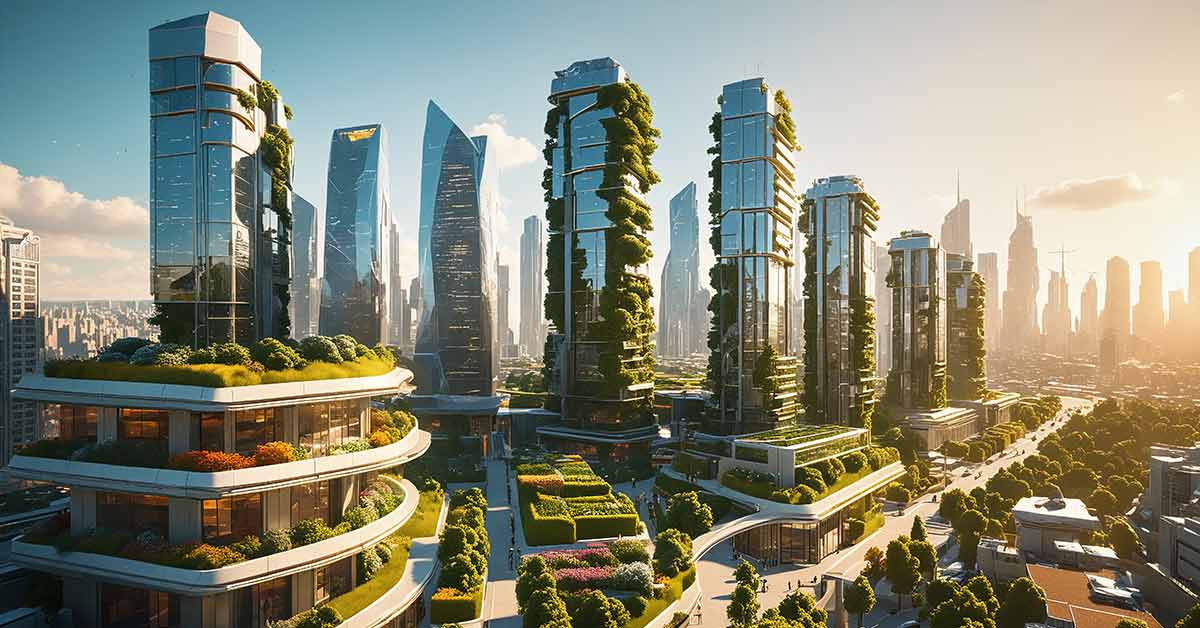
The Changing Landscape of Real Estate
The global real estate market is undergoing a significant transformation, driven by technological advancements, shifting work models, and evolving consumer preferences. Traditional property investment strategies are being reshaped by new economic realities, urbanization trends, and sustainability concerns. As a result, real estate developers, investors, and policymakers must adapt to these changes to capitalize on emerging opportunities.
Urbanization and the Rise of Secondary Cities
For decades, major metropolitan areas have dominated the real estate market, attracting high levels of investment due to their economic opportunities and infrastructure. However, as property prices in these cities continue to rise, investors and homebuyers are increasingly turning their attention to secondary cities.
Mid-sized urban centers are benefiting from improved connectivity, local economic growth, and infrastructural development. Many governments are actively promoting these areas through tax incentives, business-friendly policies, and smart city initiatives. This trend is creating new opportunities for real estate development in regions that were previously overlooked.
The Impact of Remote and Hybrid Work
The evolution of work models has dramatically influenced the real estate market. With more companies adopting remote and hybrid work policies, the demand for office space is shifting. While corporate headquarters in major cities remain relevant, flexible workspaces and decentralized offices are gaining popularity.
For commercial real estate investors, this means adapting to changing tenant needs. Co-working spaces, mixed-use developments, and short-term leasing options are becoming more attractive. Similarly, residential real estate is experiencing shifts, with buyers and renters prioritizing homes that offer dedicated workspaces, high-speed internet, and access to green spaces.
Sustainable and Smart Real Estate Development
Sustainability is no longer just a buzzword—it is a key driver of real estate development. With climate change concerns on the rise, governments and consumers are demanding greener buildings, energy-efficient solutions, and sustainable urban planning. Developers are incorporating eco-friendly materials, renewable energy sources, and smart home technologies to meet this demand.
Smart buildings equipped with IoT (Internet of Things) devices, automated climate control, and security systems are becoming the standard. These innovations not only enhance energy efficiency but also improve convenience and safety for occupants. As regulations around sustainability tighten, investing in green real estate is becoming an essential strategy for long-term growth.
The Rise of PropTech and Digital Transactions
Technology is revolutionizing how real estate transactions are conducted. PropTech (property technology) is streamlining processes such as property searches, virtual tours, digital contracts, and blockchain-based transactions. This digital shift is making real estate more accessible to investors worldwide, reducing paperwork, and improving transparency.
Artificial intelligence and big data are also playing a significant role in real estate decision-making. Investors can now leverage predictive analytics to identify high-growth areas, assess property values, and mitigate risks. As digital platforms continue to evolve, the real estate industry will become more efficient and data-driven.
Shifting Investment Strategies
Traditional real estate investment models are evolving in response to market trends. Investors are increasingly diversifying their portfolios by exploring new asset classes, such as build-to-rent properties, co-living spaces, and mixed-use developments.
Additionally, fractional ownership and real estate crowdfunding are making property investment more accessible to smaller investors. These alternative investment methods allow individuals to own a portion of a property and earn rental income without the need for large capital commitments. As financial technology continues to expand, more investors will enter the real estate market through digital platforms.
The Globalization of Real Estate Markets
Cross-border real estate investment is growing, as investors seek opportunities beyond their home countries. Favorable exchange rates, attractive yields, and political stability are key factors driving international investment. Countries with strong real estate markets, such as the United States, Canada, Germany, and Singapore, continue to attract foreign investors.
At the same time, emerging markets in Southeast Asia, Eastern Europe, and Latin America are becoming attractive investment destinations. Government policies, infrastructure development, and economic growth are fueling demand for real estate in these regions. Investors looking for high returns are increasingly exploring these global opportunities.
Addressing Housing Affordability Challenges
While real estate markets continue to grow, affordability remains a pressing issue. In many cities, the cost of housing has outpaced wage growth, making homeownership difficult for younger generations. Governments are implementing policies to address these challenges, including rent control measures, affordable housing initiatives, and incentives for first-time buyers.
The rise of modular construction and 3D printing technology is also helping to reduce construction costs and increase housing supply. By adopting innovative building techniques, developers can create more affordable housing options without sacrificing quality.
The Future of Real Estate
As the real estate market continues to evolve, staying ahead of trends is crucial for investors, developers, and policymakers. Urbanization, technology, sustainability, and changing work patterns are reshaping the industry, presenting both challenges and opportunities. Those who adapt to these shifts and embrace innovation will be best positioned to succeed in the future real estate landscape.







